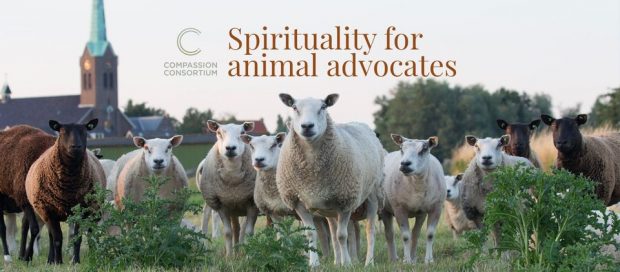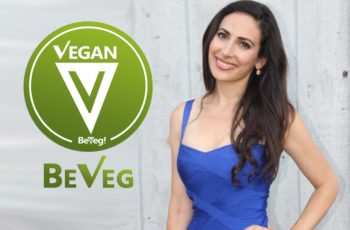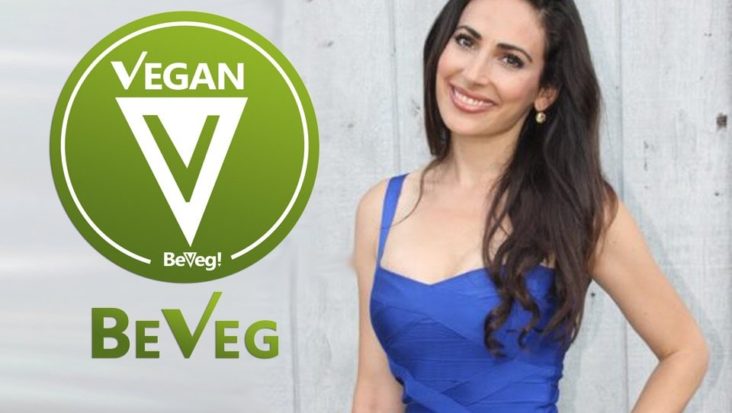“Veganism is an ethical and moral belief system where one’s lifestyle and choices are shaped by the desire to avoid cruelty and suffering to animals at all practical costs. Veganism goes far beyond plant-based food and dietary choices; the decision to practice Veganism is a way of life one practices religiously – and it demands a capital “V” like any other firmly held moral belief system serving a higher cause and purpose” – BeVeg International, founder and CEO Carissa Kranz, JD

A ruling by an Employment Tribunal in the UK, reported in early 2020, stated that ethical Veganism is a “philosophical belief” that should be protected as religions are. For Vegans to gain rights globally as a constitutionally protected class, we must begin by recognizing our importance and identity as a group of people worthy of a capital “V.”
Judaism gets capitalized and so do Jews: Reform, Conservative, Orthodox. Christianity, too, and while various Christians may differ on the details, all agree on being capitalized: Anglicans, Baptists, Mormons, and Friends (the official name for Quakers, which is also capitalized, even though it’s not official). With a lower case “c,” in fact, the word catholic means “universal,” and does not designate followers of the Roman Catholic faith. Capitalization applies to all the world’s religions and to sects within them: Buddhism (Mahayana and Theravada), Hinduism (Vaishnavism, Vedanta, et al), Islam (Sunni, Shi’a, Sufi). Sikhs, Taoists, Wiccans, Ethical Humanists, and Jehovah’s Witnesses all witness their faith tradition honored with a capital letter.
Many religions contain elements of Vegan teachings. Perhaps the closest among the world’s major religions is Jainism, practiced primarily in its native India. Jains are required to be strict vegetarians, consuming no meat, fish, or eggs for ethical reasons. They even avoid root vegetables because of the killing of insects and micro-organisms which invariably happens in their harvesting. Traditionally, Jains have been lacto-vegetarian, including dairy products in their diet, but in recent times there has been a huge push for Veganism in the Jain community, both in India and among young Jains living around the world.
In addition:
- The Order of the Cross is a spiritual fellowship based on Christian mystical teachings with the core beliefs of pacifism and vegetarianism/Veganism. (The word Vegan wasn’t coined until 1944 and the Order was founded forty years earlier).
- In the 1960s, hippie prophet Stephen Gaskin gathered followers in San Francisco to hear his message of peace, love, and Veganism. The group moved to Summertown, Tennessee, in 1970, and formed The Farm, a spiritual commune with enterprises including the country’s first soy dairy (the product: Ice Bean) and, still operating, the Book Publishing Company, specializing in Vegan books and cookbooks.
- Jewish Veg is an energetic Vegan organization dedicated to “Jewish values in action.” Among these values is God’s repeated assertion in the Torah that we eat plants, not animals; and the Torah’s forbidding of causing an animal to suffer.
- The Interfaith Vegan Coaltion was formed by under the banner of In Defense of Animals by IDA’s outreach director Lisa Levinson, Judy Carman (author of Homo Ahimsa), and filmmaker Thomas Jackson who directed the 2019 documentary on Veganism and spirituality, A Prayer for Compassion. The Coalition acts as a clearinghouse for religious and spiritual Vegan individuals and organizations, and provides denomination-specific advocacy kits to help get the Vegan message to churches, synagogues, mosques, and the like.
- Peta has a department specializing in outreach to Christians, Peta Lambs, with the enticing tagline, “Animals aren’t ours. They’re God’s.”
- And one year ago this month, the Compassion Consortium came into being, as the first Interfaith, Interspiritual, Interspecies spiritual center. Developed by Interfaith Vegan ministers Rev. William Melton, Rev. Sarah Bowen, Rev. Erika Allison, and one layperson, author Victoria Moran, the Consortium offers spiritual nourishment for Vegans and pre-Vegans. Its Tenets of Agreement lay out the underpinnings of the Vegan ethic that are found in the teachings of almost every wisdom tradition, while in these iterations stopping short of a full Vegan commitment.

One may still argue that Veganism is not a religion, but separation of church and state is inherent in the U.S. constitution. Veganism, in common with religion, is a firmly held belief system on which daily practices are based, practices tended to religiously to serve a high purpose.
Another recent precedent, outside the realm of religion, gives even more power to the capital-V argument. In the past few years, we have seen Black, when used to describe people of African descent, capitalized to signify persons who share important elements of history, culture, and identity. When capitalized, “Black” acknowledges this; with a lower-case “b,” it was just a vague and often inaccurate allusion to skin pigmentation.
 Similarly, when Vegan is capitalized, it more clearly describes who Vegans are and what we stand for. Unlike a diet — even a good one, such as vegetarian, whole-food plant-based, raw-food, or macrobiotic — Veganism is a practice, not a preference. Referring to oneself as plant-based, when actually Vegan, dilutes the Vegan cause and detracts from its purpose.
Similarly, when Vegan is capitalized, it more clearly describes who Vegans are and what we stand for. Unlike a diet — even a good one, such as vegetarian, whole-food plant-based, raw-food, or macrobiotic — Veganism is a practice, not a preference. Referring to oneself as plant-based, when actually Vegan, dilutes the Vegan cause and detracts from its purpose.
People may prefer a plant-based lifestyle for personal health or even environmental sustainability, but this preference need not be a committed way of life or being or identity. For many, being Vegan is all these. Therefore, the word must be fiercely protected; and capitalizing it is the best way to begin protecting Vegans as a recognized class. We must describe ourselves, our practices, and even the products and ingredients in those products that meet our standards as Vegan with a capital “V.”
Look to the religious analogies again. The “J” in Jewish is capitalized when characterizing rye bread, just as when it refers to a spiritual practice or scriptural edict. Ditto “Protestant work ethic,” “Hindu astrology,” “Buddhist art.” As we look at the product sector, demanding honest Vegan label claims in accordance with existing consumer protection laws is also important because Vegan-claimed products are popular, mainstream, and often misleading.
While “vegan” is a popular claim to make, it is unfortunately voluntary, affixed to products for increased sales with no standard, no backing, no third-party audits, and no mechanisms in place to consistently apply meaning. “Vegan” must signify 100% plant-sourced and cruelty-free. “Cruelty-free,” on its own, may not mean Vegan, and “plant-based” need not mean either Vegan or cruelty-free.
Use of the word “vegan” by one brand owner for marketing or sales purposes doesn’t mean that the same  criteria were used by another brand owner also claiming the distinction. A true Vegan label claim is a certified Vegan claim, with third-party audits, by an accredited Vegan trademark. BeVeg, which I created, is such a trademark, offering companies and products the highest and purest claim achievable, Certified Vegan. To date, BeVeg is the only Vegan trademark to afford legal protections in accordance with consumer protection laws. We require third-party audits by trained food safety professionals and have enlisted third-party technical administrators, like NSF International, to audit against its independent and accredited standard.
criteria were used by another brand owner also claiming the distinction. A true Vegan label claim is a certified Vegan claim, with third-party audits, by an accredited Vegan trademark. BeVeg, which I created, is such a trademark, offering companies and products the highest and purest claim achievable, Certified Vegan. To date, BeVeg is the only Vegan trademark to afford legal protections in accordance with consumer protection laws. We require third-party audits by trained food safety professionals and have enlisted third-party technical administrators, like NSF International, to audit against its independent and accredited standard.
Whether we’re talking about a food item, a face cream, or a human being, the minor grammatical technicality of “Vegan” versus “vegan” carries tremendous legal weight for the greater cause. How we identify ourselves and with how much importance, confidence and emphasis will determine the direction of our afforded protections under the law.
 Legal opinions represented in this piece are gleaned from the founding attorney and CEO of BeVeg International, Carissa Kranz, shown here and throughout. BeVeg is the world’s only ISO internationally accredited and recognized Vegan certification standard and Vegan trademark. Carissa, a lifelong Vegan and erstwhile ballerina, is a practicing attorney in Florida, New York, and Washington DC. Victoria Moran, author and director of Main Street Vegan Academy, a BeVeg-certified program training Vegan Lifestyle Coaches and Educators, contributed to this article.Victoria is a founding director of the Compassion Consortium, and Carissa is on its advisory board.
Legal opinions represented in this piece are gleaned from the founding attorney and CEO of BeVeg International, Carissa Kranz, shown here and throughout. BeVeg is the world’s only ISO internationally accredited and recognized Vegan certification standard and Vegan trademark. Carissa, a lifelong Vegan and erstwhile ballerina, is a practicing attorney in Florida, New York, and Washington DC. Victoria Moran, author and director of Main Street Vegan Academy, a BeVeg-certified program training Vegan Lifestyle Coaches and Educators, contributed to this article.Victoria is a founding director of the Compassion Consortium, and Carissa is on its advisory board.


I have not seen the trademark (BeVeg) on organic products. Is this seen in certain states?
Wow! Carissa Kranz is a POWERHOUSE! Thank you for giving a capital V to a word that had lost its luster and with this article, jolted me back into enormous pride for being a Vegan!